When I first had my pool, I wondered if I should run the pool pump all the time and, if not, how long it should run. I knew it was important that the water in the pool was kept clean, but I wasn’t sure if I should let the pool pump run continuously.
If you were to run your pool pump continuously, it would largely be a waste of electricity (and result in a big electricity bill). It would also wear out your pool pump far earlier than necessary.
Having said that, if money isn’t an issue for you, then, by all means, run the pool pump for twenty-four hours a day. Your pool will stay cleaner if the water is constantly filtered, but it won’t make that much difference.
How Long Should I Run My Pool Pump Each Day? The recommended daily runtime for a pool pump varies depending on factors such as pool size, climate, and filtration system. Generally, experts suggest running the pump for 6-8 hours to ensure optimal water circulation and filtration.
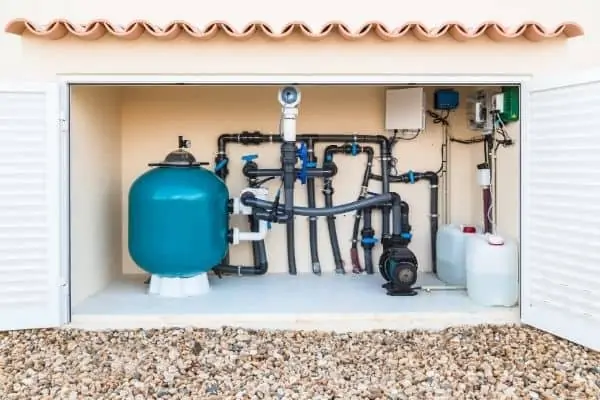

How long should a pool pump run?
It is an established rule of thumb that the minimum time a pool pump should be run is sufficient time for all the pool water to be filtered once. Often, this works out to be around 8 hours per day.
Pool constructors often supply a pool pump with a flow rate that, as a rule of thumb, pumps the full volume of the pool in 8 hours.
To work out how long the pool pump should run for your pool, you need to know two things:
- The volume of water your pool pump can pump per hour (gallons per hour or liters per hour)
- What is the volume of the water in your pool
Flow rate of the pump
To determine your pump’s flow rate, look at the specification label on the pump itself, which most pool pumps will have. You should find a GPM (gallons per minute) figure. If you cannot find it, try looking for the specifications on the pool pump manufacturer’s website.
The volume of the pool
Calculating your pool’s volume can be more complicated, particularly if you have an oval or odd-shaped pool.
For an oblong pool with a constant depth, it is easy. Just multiply the width by the length and then by the depth (in feet) to give the cubic feet of water. You then multiply this figure by 7.5 to give the volume in gallons.
Pools with varying depths, round pools, oval pools, kidney pools and other shapes make it more complicated. Rather than turn this into a mathematics post, I suggest you look on your cell phone for an app that will help you calculate the volume of a pool. There are plenty to choose from.
Simple example
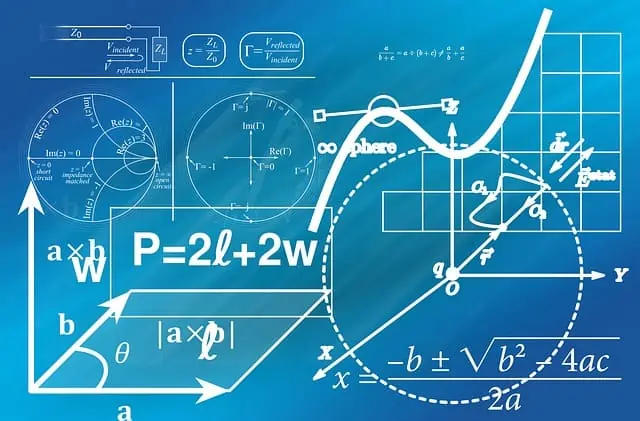
If the pool were 30ft x 15ft and 5 ft deep, the volume in cubic feet would be 2250.
To calculate the pool volume, 7.5 gallons are in a cubic foot of water, which is multiplied by 7.5 to give 16875 gallons.
If the pump’s flow rate (turnover rate) was 50 GPM that would be 3000 gallons per hour.
So 16875 gallons divided by 3000 gallons per hour gives a figure of 5.625 hours (5 hours 37 minutes) to pump the total pool volume.
In this case, I would probably set the timer so the pool pump runs for 6 hours.
Pool Volume Calculator
Please enter your pool shape and dimensions:
If you don’t want to do the math, then run your pump for 8 hours a day, and you should have no problems!
Is it ok to run the pool pump 24 hours a day?
There is nothing wrong with letting your pool pump run 24 hours a day, 7 days a week. This is the best thing to do in many ways, as your pool water will be constantly filtered and debris skimmed from the surface.
However, as you have already seen in this article, running it for this long is unnecessary.
If you run the pump 24/7, just be aware that your electricity costs will be higher, and your pool pump’s lifespan will be reduced.
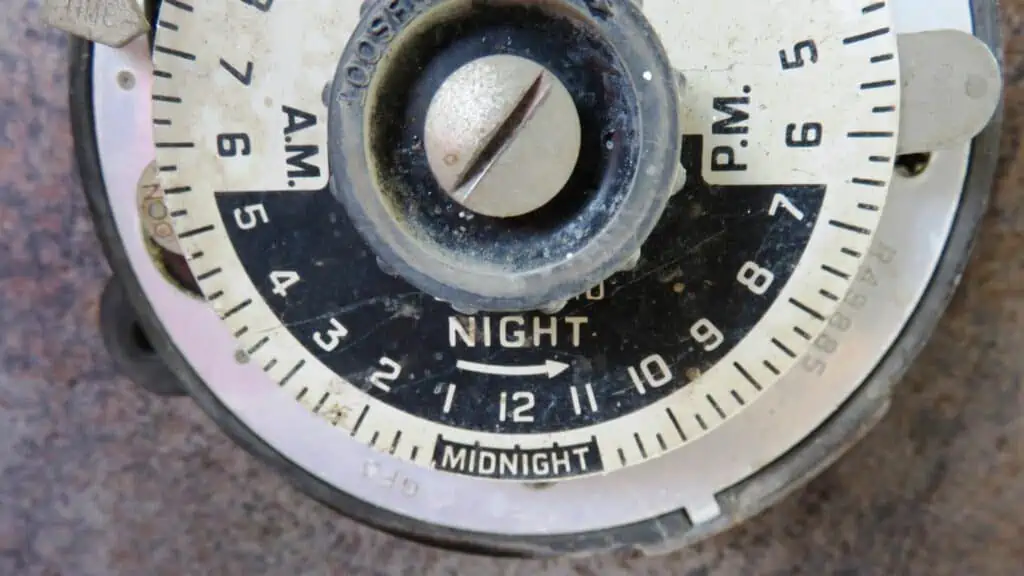
When should you be running the pool pump 24/7?
I wondered when I first had a pool and whether there were any situations where I should always leave my pool pump running. Well, there are numerous situations where you may want to do this. These include:
- If you have given the pool a big dose of chemicals, perhaps when you have shocked it, you may want to leave the pump running for 24 hours to ensure the chemicals are spread around the pool.
- Running the pump until it clears would be worthwhile if the pool is cloudy.
- The pool will be used frequently if you have friends staying, particularly if they include children in and out of the pool all day.
- If you haven’t winterized your pool in winter and a very cold spell is forecast, you should leave the pump running to prevent the water in the pipework from freezing.
Can I turn my pool pump off at night?
In many places, the cost of electricity is supplied at a cheaper rate at night than during the day. So running the pump at night can reduce the pool costs. But there is more to this than pure economics, so consider these factors:
- A pool is generally most vulnerable to attacks by algae during the day, as algae need light to grow. Running a pool only at night increases the risk of algae. So, ideally, you want the chlorine circulating during the day when the algae are most active.
- Your pool is most used during the day, so the pump needs to be running to keep it clean and the chlorine working properly.
- If you have solar heating that requires water to flow through it to absorb the sun’s heat, then obviously, running the pump only at night will not heat the pool.
- If your pump is noisy and you have close neighbors, they may not be happy hearing it whirring all night. It would certainly annoy me as I am a light sleeper. In fact, my neighbor’s pool is on the other side of the fence from my bedroom and, although I can’t hear his pump, I get woken up at 7am each morning when his waterfall starts. I am not an early riser so that doesn’t please me (but unfortunately, he is an unhelpful idiot so if I spoke to him about it then he would just set the timer to come on at 5am!)
Also read: Best time to run pool pump
Do you have to run the pump for 8 hours in one go?
You do not have to run the pool pump for 8 consecutive hours.
You could run it for 4 hours in the early morning and another 4 in the late afternoon.
To save money, you could set the timer for the pump to run for 4 hours until the higher peak electricity charges start, then be off during the peak hours and restart for another 4 hours when the non-peak hours start again.
Will a variable speed pool pump save me money?
Having a variable-speed pool pump will save you money in the long run, as it consumes less electricity when running at a slower speed. In many instances, savings are more than 50%, so even with the initial increased cost of buying the pump, it is easy to see that this cost will soon be recovered.
If your existing standard pool pump is quite old, it will likely be inefficient, too. So even if you were to run variable speed pool pumps in full for the same amount of time as the old one, you would save money as new variable speed pumps are more efficient. However, using the new pump at a lower speed at certain times will save even more.
The generally accepted best variable-speed pump is the Pentair 011028 IntelliFlo Variable Speed Pool Pump, which can save up to 90% over standard pumps. It is quite a large investment but will pay for itself over time.
How long should the pool pump run in winter?

The length of time you should run a pool pump in winter depends on the climate. It is different if you live in a cold or warmer climate.
If you live somewhere that can reach low temperatures and the water could freeze, then during those cold periods, you really need to either winterize the pool or, when the temperature may drop below freezing, run the pump to ensure the water in the pool and the pipes does not freeze.
If you have a variable-speed pump, some have a winter setting, which turns the pump on when the temperature falls to a particular level.
Where I live, the minimum winter temperature at night is around 52 degrees Fahrenheit / 11 degrees Centigrade (yes, I know, poor me), so I always leave the pump on an 8-hour timer.
Of course, the above assumes that you do not close your pool for the winter by lowering the water level and draining the pipework, pump, filter etc. If you do, the pump should not be run since there will be no water in the system.
If I use a pool cover, will that affect the time the pump should run?
Yes, it will, to some extent. As discussed above, light is an important factor in algae growth. If you have a pool cover on, which is generally dark blue, then less light shines on the water, so algae will be less likely to grow. Therefore, theoretically, you could run the pool pump for less time.
In practice, I rarely reduce the pump time when I have my pool cover (mainly in the spring and autumn to help keep the warmth in).
Can you swim while the pool filter is running?

Yes, you can, and I would even say it is better to run the pool pump while you are swimming in fact.
If the pump isn’t running, the skimmers will not operate. Therefore, debris (leaves, insects, etc.) is more likely to flounder on the pool’s surface, which you don’t want when swimming.
Also, people swimming bring contaminants into the pool with them, such as:
- dirt, sand and dust on their feet
- deodorant on their bodies
- suntan lotion perhaps
- hair
Having the pool pump running means the filter can deal with these quickly.
I have a full article on this: Is swimming safe when the pool pump is running?
Summary
With a few exceptions, running a pool pump continuously for 24 hours a day is unnecessary. However, running your pool pump long enough to pump the entire volume of water in a pool each day is normally recommended. In practice, the answer to how long I should run my pool pump is generally around 8 hours each day.
Related article
If you get air locks when you start your pump, you can read how to get rid of the air in this post – How to Bleed Air From a Pool Pump or Filter
FAQ
How long do pool pumps last?
This is a “How long is a piece of string?” question. It depends on the type and quality of the pump, the amount it is used and how well the system is maintained. But a rough rule of thumb is that a pump can last for anything from 7 years to upwards of 12 years. I recently replaced my pump; as far as I can tell, it was at least 12 years old.
Can you run a pool pump with a cover on?
It is absolutely safe and, in fact, completely normal to run a pool pump while a solar cover is still on. The water will circulate as normal and be filtered while still retaining heat.
Does a pool pump use a lot of electricity?
How much electricity your pool pump uses depends on its energy efficiency, the amount of water it can handle per hour and the size of your pool.
Can I run my pool pump every other day?
If you do not close your pool, you may be able to run the pool pump every other day during the winter, but it would not be a good idea during the summer. The pool water needs to be filtered daily to keep it in good, clean condition.
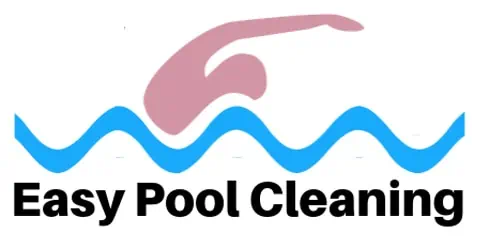

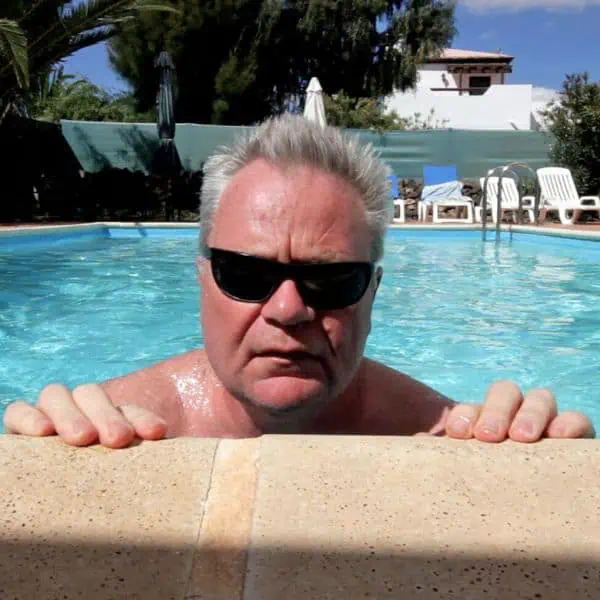

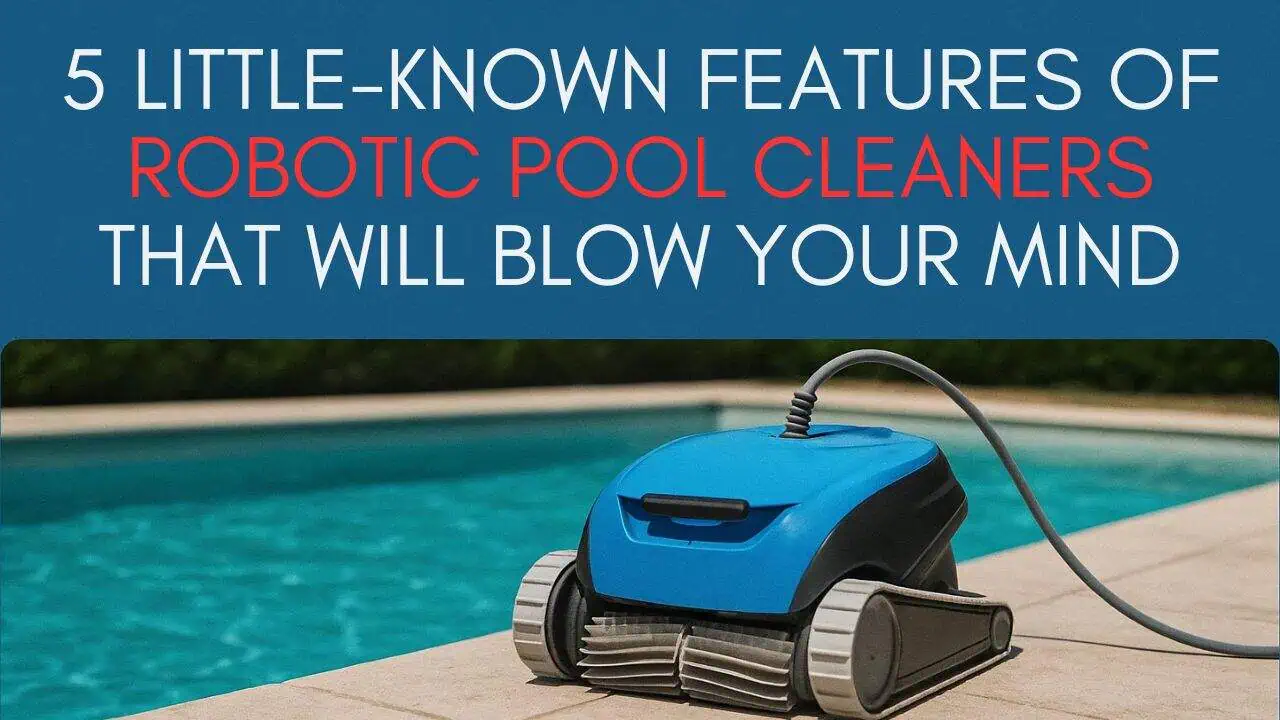

Leave a Reply